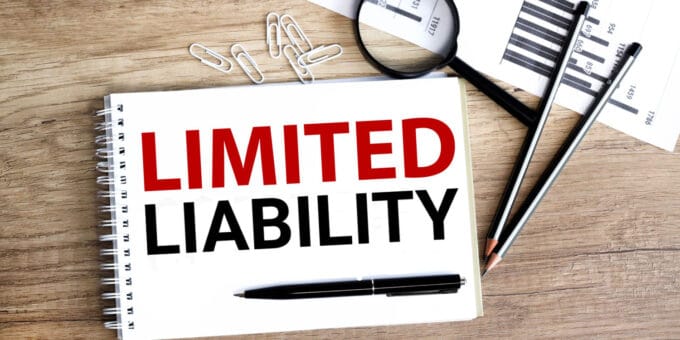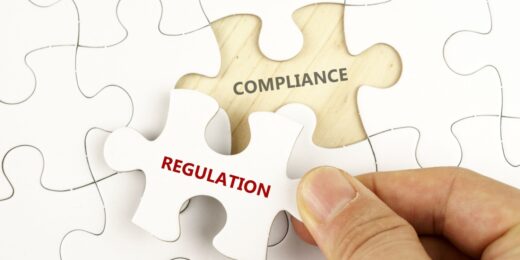Limited liability is a legal status that limits a person’s financial responsibility for the debts of their business to a fixed sum. It is a fundamental characteristic of incorporated business structures that exist as distinct legal entities, including limited companies, limited liability partnerships, and limited partnerships.
If you’re considering starting your own business and wondering which structure is best, it’s important to understand the concept of limited liability, what it means in practice, and how it compares to unlimited liability.
Key Takeaways
- Limited liability protects personal assets from business debts, making it crucial for entrepreneurs when choosing a legal structure for their business.
- Company members, LLP members, and limited partners in limited partnerships benefit from limited liability protection against business debts.
- Personal guarantees can expose individuals to liability, so always ensure contracts clarify your role and protect your interests.
Understanding limited liability in a limited company
Limited companies can be set up with or without share capital. Those with share capital are limited by shares, whereas companies without share capital are limited by guarantee. The members of both types of limited company benefit from ‘limited liability’.
- In a company limited by shares, the liability of members (shareholders) is limited to the unpaid portion (if any) of the nominal value of their shares. Typically, a share’s nominal (par) value is just £1. Therefore, if a shareholder takes 10 shares, their total liability is capped at £10.
- In a company limited by guarantee, the members (guarantors) don’t own shares because limited by guarantee companies do not issue shares. Instead, each guarantor provides a ‘guarantee’. This is a legal promise to contribute a fixed sum of money if the company can’t pay its debts or is wound up. Most guarantees are a nominal sum of just £1.
Beyond the limited liability of members, companies are responsible for their own debts, obligations, and actions. Since companies exist as legal entities separate from their members and directors, creditors generally cannot recover debts from the personal assets of members or directors. They can usually only claim from the assets of the business. However, there are exceptions, which we discuss later in the post.
When do members pay the nominal value of their shares or guarantees?
Company shareholders often pay the nominal value of their shares as soon as they agree to take them. This may be during the company formation process or after incorporation.
However, each company has its own rules on paying for shares. These rules are set out in the articles of association and, if one exists, a shareholders’ agreement.
Some companies allow members to hold shares unpaid or partly paid until a specified future date or the director issues a ‘call on shares’. When a company issues a call notice, members must pay some or all of the outstanding sum they owe on their shares.
In a company limited by guarantee, the guarantors will pay the guarantee sum upon the company’s request. This usually happens if the business is insolvent (unable to pay its debts) or wound up (closed).
If a company becomes insolvent, the capital raised from the nominal value of shares or guarantees contributes towards paying off its outstanding debts during the liquidation process.
Understanding limited liability in a limited liability partnership (LLP)
Limited liability partnerships (LLPs) do not have shares. They are set up by two or more LLP members (partners), each of whom has limited liability for the LLP’s debts and actions.
LLP members’ financial liability for any outstanding business debts upon the winding up of the partnership is limited to the amount of capital they invest in the business and/or any personal guarantees they provide.
Liability of partners in a limited partnership (LP)
Limited partnerships (LPs) and Scottish limited partnerships (SLPs) have two types of partners: limited and general.
- Limited partners enjoy limited liability. They are only liable for the partnership’s debts up to the amount of money or value of property they contribute to the business.
- General partners are personally liable for any business debts that the partnership cannot pay.
In exchange for assuming greater financial risk, general partners control and manage the business and have the power to make binding decisions on behalf of the entire partnership.
Exceptions to limited liability in companies, LLPs, and limited partnerships
In certain circumstances, limited liability does not apply to company members, LLP members, or limited partners. This situation is known as ‘lifting’ or ‘piercing’ the corporate veil – a theoretical barrier that separates the legal personalities of the person and the business.
A person with limited liability protection may be personally responsible for the debts of their business if they provide a personal guarantee for a business loan and the company or partnership is unable to repay it.
LLP members, limited partners, and company members (if they are also directors) may also lose the benefit of limited liability in the following situations:
- Continuing to trade whilst knowing that the business is insolvent
- Disposing of business assets for free or below market value during insolvency
- Engaging in fraudulent or illegal activities
- Negligence
- Mismanagement of business finances
- Misapplication of assets belonging to the business
- Having an overdrawn balance in a director’s loan account
- Issuing illegal dividends in a company limited by shares
- Evading tax
- Breaching health and safety duties
In these situations, creditors and claimants can hold individuals personally liable for the business’s debts. They can make claims on the individual’s personal assets (e.g. property, savings, investments) and use those assets to recover payments owing to them.
Minimising your exposure to personal liability
As a business owner or company director, understanding the financial risk and taking steps to limit your exposure to personal liability for business debts are crucial.
Whilst it is rarely possible to remove all personal risk in business, there are several things you can do to minimise the potential for personal liability.
- Set up a business bank account to keep personal and business finances separate. This will help you to avoid any accidental misappropriation of company or partnership funds for personal use.
- When entering into contracts on your business’s behalf, ensure all documents are drafted and executed correctly.
- Unless you’re providing a personal guarantee for a business loan or agreement, avoid signing contracts using only your name. Ensure the documentation clarifies that you’re signing ‘on behalf of’ the business.
- Protect your personal finances further by taking out business insurance. Examples include: employers’ liability, public liability, professional indemnity, and directors’ and officers’ (D&O) liability insurance policies.
- Seeking professional advice from an accountant and a solicitor, where applicable, will also help minimise your exposure to personal liability.
An accountant can help you manage your business finances appropriately and provide specialist tax advice. Whereas, a solicitor can advise on matters such as client and supplier contracts, personal guarantees, shareholders’ agreements, and LLP agreements.
What does unlimited liability mean?
In stark contrast to limited liability protection, unlimited liability means that a person’s financial liability is not capped at a certain amount. There is no limit to how much money the person may be liable for if their business fails or faces legal claims.
Sole traders, general members of LPs, and partners in general (traditional) business partnerships have unlimited liability. This is because there is no separation between the person and the business in terms of legal personality and liability.
Consequently, creditors and other third parties to whom the business owes money can make claims on the person’s personal assets. Essentially, their personal assets, including their home and savings, are at risk if the business can’t pay its debts or meet its contractual obligations. In serious cases, it can lead to personal bankruptcy.
Despite the lack of financial protection, business structures with unlimited liability remain popular and are suitable for many people. It depends entirely on the owner’s needs or preferences and the type of work they do.
If you’re unsure which business structure is best for you, we recommend consulting an accountant or independent business advisor. They can provide tailored advice and help you make an informed decision.
So, there you have it…
We’ve explained the concept of limited liability as it relates to incorporated business structures, what it means in practice, the situations where this protection may not apply, and how it compares to unlimited liability.
Hopefully, you now have a clear understanding of limited liability and why it is such an important consideration when starting a business or getting involved with an existing limited company, LLP, or LP.
If you have any questions about this topic or want to know more about setting up a limited company or LLP, please comment below or contact our London-based company formation experts.
Please note that the information provided in this article is for general informational purposes only and does not constitute legal, tax, or professional advice. While our aim is that the content is accurate and up to date, it should not be relied upon as a substitute for tailored advice from qualified professionals. We strongly recommend that you seek independent legal and tax advice specific to your circumstances before acting on any information contained in this article. We accept no responsibility or liability for any loss or damage that may result from your reliance on the information provided in this article. Use of the information contained in this article is entirely at your own risk.














Join The Discussion